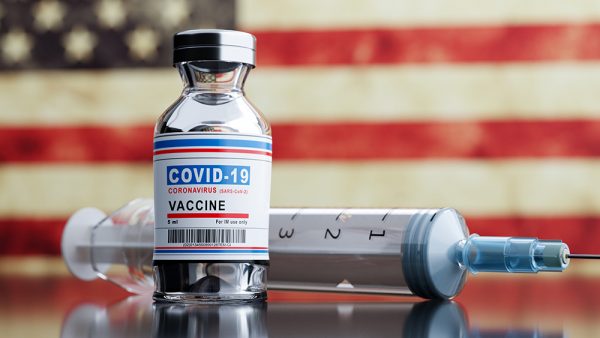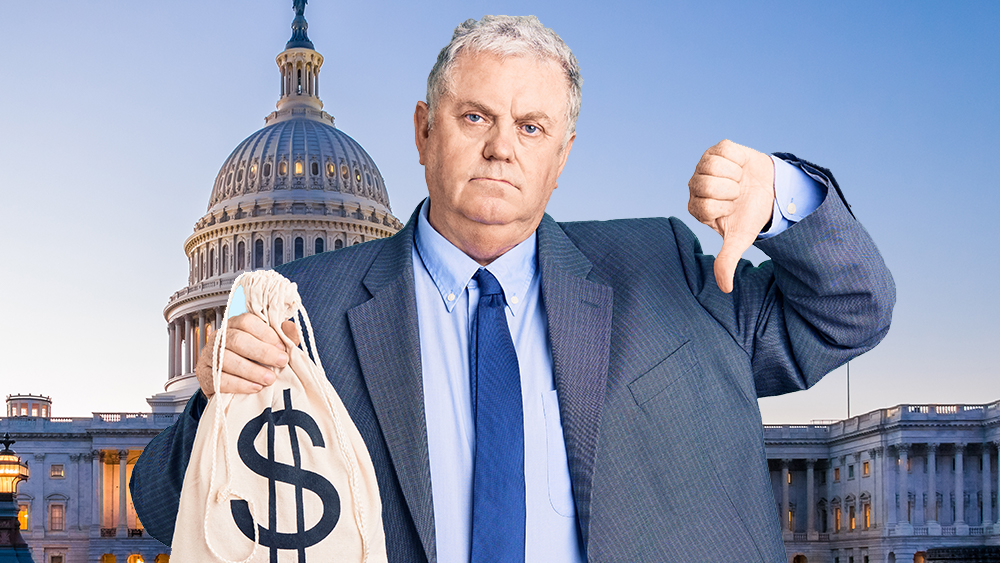 Parler
Parler Gab
Gab
A recent report from consumer-advocacy group Accountable.US revealed that S&P 500 food and consumer-goods giants are still raising prices even as input costs are falling.
Dubbing the measures "greedflation" in place of inflation, Accountable.US said these companies still attach their products with hefty price tags to protect what a new report calls their "cushioned corporate profits," and doing so also enabled them to boost margins through the current inflationary period. The report indicated that Kimberly-Clark Corp., PepsiCo Inc., General Mills Inc. and Tyson Foods Inc. have on recent earnings calls touted their ability to raise prices, earn tidy profits and reward their shareholders as they go. "Higher interest rates haven't stopped S&P companies, especially in the big food industry, from raising consumer prices despite reporting billions in extranet earnings and over a trillion dollars in new giveaways to wealthy investors," said Liz Zelnick, the director of economic security and corporate power at Accountable.US. Zelnick further said the corporations' predatory moves are not worth it. "Corporate greed is a stubborn thing and requires serious action from Congress. The Fed has not seen an adequate return on its investment in a policy that has already created fissures in the economy that could lead to recession," she pointed out. (Related: GREEDFLATION: McDonald’s, PepsiCo raising prices beyond inflation to generate bigger profits.) For Accountable.US, it's a compelling evidence that the Federal Reserve's rate-hike strategy "has failed to root out one of the main drivers of inflation and should give the Federal Open Market Committee (FOMC) pause before lifting rates again this week to the detriment of jobs and the economy." According to Kimberly-Clark executives, the company is able to "rapidly implement broad pricing actions." It also admitted that its pricing has continued to be a big driver behind their growth. Its Q1 earnings topped expectations following its 10 percent increase in prices for a second straight quarter, driving margins wider by 340 basis points. Also, PepsiCo Chief Executive Ramon Laguarta told analysts that most of its price increases are behind the recent high profit. The soft drink company's earnings for 2022 rose 16.9 percent or about $9 billion. General Mills, meanwhile, bragged about getting smart about how it looks at pricing. The parent of brands including Cheerios, Nature Valley, Blue Buffalo pet products and Pillsbury raised its fiscal 2023 guidance in February. Moreover, Tyson executives touted the "significant pricing power of our portfolio with a year-over-year increase of 7.6 percent." While the company was hit by weak demand for meat, plant closures and job cuts, it had a net income of over $3.2 billion in 2022, which beat its $3 billion net income in 2021.Recession becomes inevitable because of Fed's continued interest rate hikes
The world's biggest bond managers from Fidelity International to Allianz Global Investors have warned that recession in the U.S. is "inevitable." They predicted a downturn in the economy and advised hedging any bets on riskier assets. Steve Ellis, a global fixed-income chief investment officer at Fidelity International, which manages $663 billion of assets, said something akin to a credit crunch is what he is most concerned about. "Central banks' continued tightening shows they're fighting last year's battle." According to experts, the damage from 10 continued increases in the interest rate caused the collapse of three major U.S. lenders back in March. Mike Riddell, portfolio manager at Allianz Global Investors, said stocks, bonds and corporate debt are mispricing the risks and that only inflation-rate swaps have the economic outlook right. The so-called one-year forward inflation rate is currently at 2.4 percent, or close to two percent when risk compensation for investors is factored out. He weighed this as a clear implication that a "nasty recession" is about to happen within the next six months. "Our base case is for a moderate-to-deep recession, and potentially crises, as the unprecedented pace of global policy tightening seen over the last year starts to really bite," Riddell said. Head over to Collapse.news to read more about the looming economic collapse. Watch the video below that talks about why food prices are still shooting high even as inflation cools. This video is from the NewsClips channel on Brighteon.com.More related stories:
High inflation in Pakistan triggers FOOD RIOTS. Stubborn inflation causes the price of Big Macs to soar. US home foreclosures SURGE as inflation continues to soar and incomes decline.Sources include:
MarketWatch.com SHTFPlan.com Fortune.com Brighteon.comFRESHLY OVERLAID graphene oxide “nanobots” found in Pfizer COVID-19 vaccines
By Laura Harris // Share
Top 7 ways most Americans WASTE money
By S.D. Wells // Share
Governments continue to obscure COVID-19 vaccine data amid rising concerns over excess deaths
By patricklewis // Share
Tech giant Microsoft backs EXTINCTION with its support of carbon capture programs
By ramontomeydw // Share
Germany to resume arms exports to Israel despite repeated ceasefire violations
By isabelle // Share










